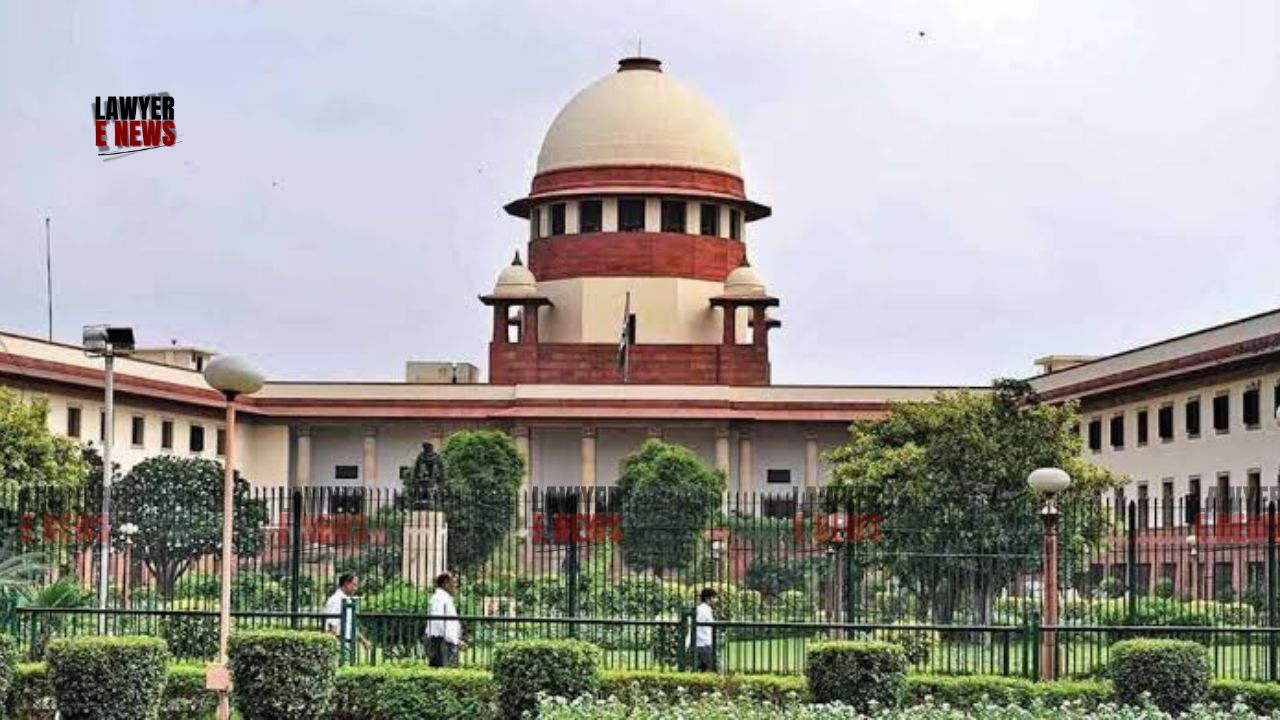-
by sayum
17 February 2026 5:33 AM



“Allegation of Misuse is Vague” - In a significant ruling on matrimonial jurisprudence, the Supreme Court of India on 15 April 2025 dismissed a Public Interest Litigation (PIL) filed by the NGO Janshruti (People’s Voice) seeking far-reaching reforms in laws relating to matrimonial disputes, including amendments to Section 498A IPC (now Section 84 of the Bharatiya Nyaya Sanhita) and the maintenance provisions under CrPC and other statutes.
No Judicial Interference with Legislative Policy under Article 32
A bench comprising Justices Surya Kant and N. Kotiswar Singh held that there was no merit in the contention that Section 498A of the IPC was violative of Article 14 of the Constitution. The Court emphasized that Article 15 expressly permits special laws for the protection of women and children, and any such statutory provision cannot be struck down on the grounds of alleged misuse in individual cases.
“We see no reason to interfere with the legislative policy behind Section 498A IPC (now Section 84 BNS)... The allegation that the provision is being misused is vague and evasive,” the bench observed, declining to entertain the PIL under Article 32.
"Misuse of Law is Not Ground to Strike It Down"
Rejecting the petitioner’s contention that provisions like Section 498A IPC are being misused, Justice Kant observed orally:
“There may be possibility of misuse, but a provision meant for protection of women and to further women empowerment must not be attacked like this.”
The Court noted that isolated allegations of misuse cannot be a basis to declare a statutory provision unconstitutional, especially when such claims are not backed by credible data applicable to a constitutional challenge.
"We Maintain Our Sovereignty" – Court Rejects Comparison with Foreign Jurisdictions
When the petitioner’s counsel submitted that domestic violence laws abroad allow men to file cases unlike in India, the Court was quick to rebuff the argument:
“We maintain our sovereignty. Why should we follow other countries? They should follow our country!”
Petition Sought Overhaul of Matrimonial Laws
The PIL, filed through Advocate-on-Record Sadhana Sandhu, sought the following broad reforms:
Gender-neutrality in maintenance laws under CrPC and Hindu Marriage Act
Amendment of Section 498A IPC for balanced protection
Preliminary investigation before filing of matrimonial complaints
Compensation mechanisms for false accusations
Time-bound maintenance decisions within 90 days
Limitation of maintenance to 2 years for educated spouses
Mandatory mediation and establishment of Matrimonial Mediation Courts
Penal provisions against false complaints under Section 182 IPC
Unified financial disclosure formats in all maintenance proceedings
Digitalization and virtual hearing mechanisms for matrimonial matters
Legal literacy and gender-sensitivity training for law enforcement and judiciary
Consolidation of all matrimonial cases involving same parties in a single proceeding
"Court Is Not a Policy-Making Forum": Bench Declines Leave to File Fresh Petition
The Court firmly rejected the request for withdrawal of the petition with liberty to file a more comprehensive PIL, remarking that the judicial platform must not be misused to target protective statutes in the garb of reform:
“If you have the patience to sit in Court today, you will find there is a case where the woman has been beheaded by the husband. Do you want us to apply ‘misuse’ [submission] there?”
Justice Kant added that the judiciary could not legislate or impose timelines or structural reforms that fall within the domain of the legislature and state governments, especially where financial or infrastructural resources are involved.
The Court concluded that the petitioner was expecting the judiciary to legislate on issues that are within Parliament’s prerogative. Observing that matrimonial disputes require a fact-specific adjudication rather than a one-size-fits-all framework, the bench dismissed the PIL in entirety.
This ruling reaffirms the Supreme Court’s cautious approach in matters where legislative policies are questioned, especially in sensitive domains such as matrimonial and gender-protective laws. The Court clarified that while concerns about misuse may be valid in individual cases, the solution lies in case-wise adjudication and systemic strengthening, not judicial repeal of statutory safeguards.
Date of Decision: 15 April 2025
